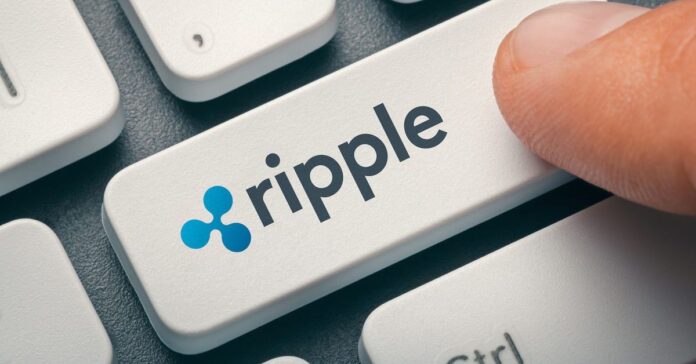- Ripple is deepening its foothold in the tokenization ecosystem.
- The firm is pivoting into tokenization to help revolutionize different industries, particularly finance.
Ripple Labs Inc., a leading provider of enterprise blockchain solutions for global payments, and Metaco, a renowned provider of digital asset infrastructure, have recently joined forces to establish a tokenization alliance, amidst challenges facing the XRP market. As of the latest data, XRP is trading at $0,5191, down by 0.44% in the past day.
Tokenization to Reshape the Financial Industry
Tokenization offers considerable benefits, ranging from easier management to improved access and liquidity, and firms across industries are exploring this developing frontier. Ripple highlighted in a recent post the transformative potential of tokenization in revolutionizing finance, emphasizing enhanced transparency and increased accessibility as key drivers of this paradigm change.
Tokenization is reshaping the future of finance, offering the promise of enhanced transparency and increased accessibility.
Part II of our tokenization series details how companies are unlocking value and navigating an evolving digital asset landscape.https://t.co/VVO8gCfjcb
— Ripple (@Ripple) February 13, 2024
Blockchain researcher Collin Brown added, “Tokenization on the XRP Ledger is on the horizon. Get ready for a surge of trillions of dollars into XRP.” Ripple’s 2023 New Value Report further highlights this sentiment, revealing that 72% of its respondents plan to explore tokenization to drive innovation in the next three years.
💥💥 BÄÄÄÄÄÄÄÄÄÄÄÄÄM! 💥💥
Exciting news! Tokenization on the #XRP Ledger is on the horizon. Get ready for a surge of trillions of dollars into XRP! 🚀📈
And remember, $100 is just the beginning… 🌟 pic.twitter.com/ihZDaIwkkq
— Marcel Knobloch aka Collin Brown (@CollinBrownXRP) February 10, 2024
One of the primary benefits of tokenization as highlighted in Part 2 of Ripple’s Business Strategies for Navigating Tokenization is greater transparency. Blockchain technology ensures that transaction data stored on a blockchain is immutable, fostering security and trustworthiness within the ecosystem.
This enhanced transparency is particularly transformative for industries plagued by opacity and double counting, such as the voluntary carbon credits market, where tokenization represents a major leap forward in credibility. While tokenization holds promise across industries, certain sectors are particularly poised to thrive in the emerging token economy.
Financial institutions, for instance, are increasingly leveraging blockchain technology to power modern payment solutions, enabling faster settlement times, lower costs, and greater transparency. Asset management funds are also undergoing notable changes, with a vast majority of respondents in a BNY Mellon survey acknowledging the transformative potential of tokenization.
Traditional banks are well-positioned to prosper in a tokenized economy by offering unified platforms that encompass fiat, digital currencies, and tokenized assets, thereby fostering greater customer trust and engagement. Tokenization also improves access to asset classes by reducing traditional barriers to entry and eliminating geographical boundaries, enabling companies to offer a wider array of assets to investors.
Navigating the Tokenized Future
However, the benefits of tokenization can only be fully realized when markets for tokenized assets become more liquid and have a strong secondary market. Operational efficiencies offered by tokenized assets on the blockchain, such as faster transactions and reduced management fees, further enhance the appeal of tokenization for businesses.
As Ripple and Metaco gear up for a tokenized future, they must plan for key elements such as enabling liquidity, on/off ramps, custody, and compliance that will serve as the foundation for success. Enabling liquidity is essential for supporting core treasury functions and protecting asset holders against risk.
Seamless on/off ramps facilitate the easy conversion and transfer of value between traditional assets and digital assets. Robust custody solutions ensure the security of digital assets, while compliance with regulatory standards is crucial for fostering trust and credibility in the tokenized economy.
Credit: Source link






















 Bitcoin
Bitcoin  Ethereum
Ethereum  XRP
XRP  Tether
Tether  Solana
Solana  USDC
USDC  Dogecoin
Dogecoin  Cardano
Cardano  Lido Staked Ether
Lido Staked Ether  TRON
TRON  Wrapped Bitcoin
Wrapped Bitcoin  Wrapped stETH
Wrapped stETH  Chainlink
Chainlink  Avalanche
Avalanche  Sui
Sui  Stellar
Stellar  Litecoin
Litecoin  Shiba Inu
Shiba Inu  Toncoin
Toncoin  Hedera
Hedera  LEO Token
LEO Token  USDS
USDS  Hyperliquid
Hyperliquid  Polkadot
Polkadot  WETH
WETH  MANTRA
MANTRA  Bitcoin Cash
Bitcoin Cash  Ethena USDe
Ethena USDe  Bitget Token
Bitget Token  Wrapped eETH
Wrapped eETH  Uniswap
Uniswap  Monero
Monero  NEAR Protocol
NEAR Protocol  Pepe
Pepe  WhiteBIT Coin
WhiteBIT Coin  Aave
Aave  Ondo
Ondo  Bittensor
Bittensor  Aptos
Aptos  Internet Computer
Internet Computer  Dai
Dai  Official Trump
Official Trump  Ethereum Classic
Ethereum Classic  Mantle
Mantle  Tokenize Xchange
Tokenize Xchange  OKB
OKB  Gate
Gate  sUSDS
sUSDS  Coinbase Wrapped BTC
Coinbase Wrapped BTC 
